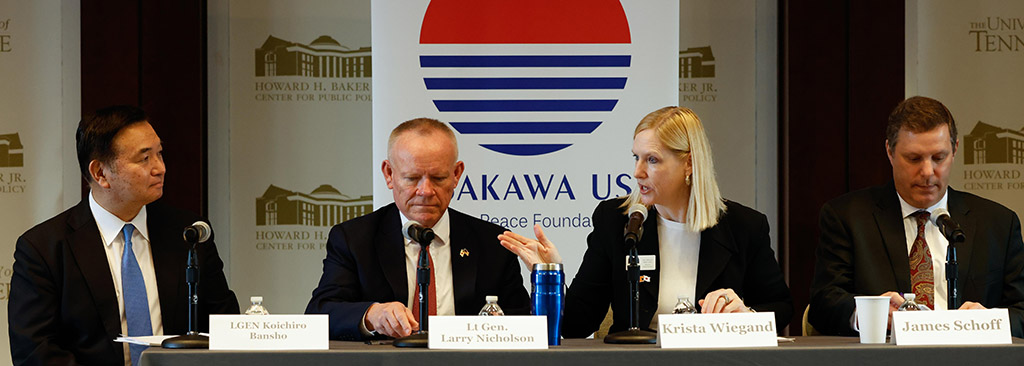Recap: Impacts of Limitations of Workforce Development in Machining on U.S. National Security

Recap: Impacts of Limitations of Workforce Development in Machining on U.S. National Security
By: Tyler Staszewski
The Center for National Security & Foreign Affairs at the Baker School hosted speaker Tony Schmitz, a professor at the University of Tennessee, co-facilitator at Oakridge, and the Director of the Southeastern Advanced Material Tools Network. Dr. Schmitz gave a presentation as part of the center’s National Security Forum lecture series on the issue of offshore manufacturing of machine tools and how this affects the national defense of the U.S. Dr. Schmitz explained that machining is a very specific process that allows engineers to get exact calculations to build incredibly detailed tools, parts, machines, or pretty much anything. How does this affect national defense? The speaker noted that almost everything used in the Department of Defense (DOD) has been touched by a machine tool at some point. Many of the things the military uses today, such as aircraft, submarines, radars, etc., have a very specific way they must be built for them to function in the way that the DOD needs them to – efficiently and discreetly.
Dr. Schmitz explained that the U.S. production of machine tools has been reduced significantly since World War II due to manufacturing being sent abroad to other countries where labor costs are much cheaper than in the U.S. However, the U.S. has become heavily dependent on raw materials, machine tools needed for manufacturing, and manufacturing production over time. Combined with supply chain disruptions, this has created a dilemma for the U.S. military since it needs critical machine parts to produce the necessary equipment. The Biden administration has recommended that the U.S. increase domestic manufacturing production, strengthen infrastructure to create machinery and grow and improve the workforce to work on machine tools to manufacture products necessary for the U.S. military. The U.S. must have the infrastructure and the workforce to have a “resilient, competitive, and sustainable supply chain.”
Dr. Schmitz also explained where the most prominent issue lies: it takes thousands of individual contributors to come together to make an airplane, for example. The U.S. currently needs more machinery to make the machines for manufacturing defense production. Schmitz jokingly noted, “We don’t have the things to make the things to make the things.” U.S. manufacturing capabilities are too reliant on several different countries, including China, and the supply chain could become disrupted due to a conflict or a geopolitical issue. The main point is that defense production must withstand a conflict or a supply chain disruption. The solution is focusing efforts on reshoring manufacturers of machine tools back to the U.S. and training the workforce to work in this critical field.
What is currently being done to address this dilemma? The University of Tennessee is involved in four active initiatives: Tennessee Manufacturing and Design Enterprise (TN MADE), America’s Cutting Edge (ACE), Southeastern Advanced Machine Tools Network (SEAMTN), and ORNL Intelligent Machine Group, all of whom are focused on expanding machinery and manufacturing, TN MADE has a 50,000 sq feet manufacturing and training facility dedicated to advance manufacturing in East Tennessee. These initiatives also concentrate their efforts on job training in a hybrid manner, remotely and in-person. The curriculum is expanding beyond Tennessee; ACE currently has over 600 trainers outside Tennessee, and some online programs have participants from 43 states. Defense production will increase with improved workforce development in machining and reshoring manufacturing companies back to the U.S. At the same time, dependency on other countries and worries about geopolitical tensions affecting the supply chain will decrease. All of this is good for the national defense of the U.S.
To view the full lecture, click here.